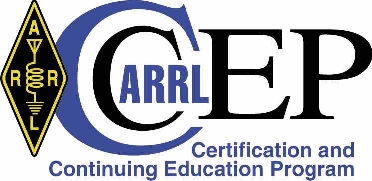
1 ARES Management Positions 2 Districts in the ARES Field Organization 3 Building a Local ARES Group 4 RACES: Radio Amateur Civil Emergency Service 5 The Changing ARES/RACES Relationship 6 ARRL Field Organization and HQ Disaster Support Functions 7 Quick Response Teams (QRTs) 8 National Voluntary Organizations Active in Disaster 9 Relations with REACT International 10 Designing The Local Emergency Response Plan 11 Network Theory and the Design of Emergency Communication Systems 12 The Federal Response Plan 13 Key FRP Emergency Support Functions 14 What to Expect in Large-Scale Disasters 15 Hurricane Disasters 16 The Hurricane Watch Net 17 Disaster and Health/Welfare Traffic Handling 18 Marine Communication 19 Receiving and Processing "Walk-Ins" 20 Designing Successful Exercises 21 FCC Rules on Emergency Communications 22 Alternative Radio Systems 23 Mobile Communication Vehicles 25-question multiple-choice assessments Award of certificate and ID card |